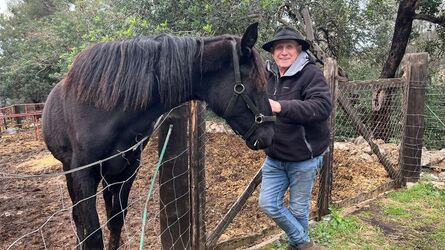With a series of video portraits, TV journalist Sibylle Tiessen takes us on a captivating journey into a world full of exciting projects, cultural diversity and authentic stories on Mallorca. Supported by TUI, the TUI Care Foundation and Majorca Daily Bulletin, viewers learn more about the island from a whole new perspective, from inspiring stories of locals to social, artistic, ecological, scientific and political aspects.
Episode 13: "I work with the most dangerous animals in the world”
"Mosquitoes pose the greatest danger. They don't kill us directly, but they transmit diseases that can kill us," explains the entomologist Carlos Barceló. The tiger mosquito is the best example of this. "In my work I am investigating the different types of mosquitoes: What species are there on the Balearic Islands, what pathogens do they carry, what do they feed on?"
But is it so easy to find and catch such small animals in the wild? "When I go to a place, I immediately know where to find them. These traps work great, by the way," says Barceló, pointing to a white bag. "Mosquitoes love the smell of sweat and our skin. This bag contains an attractant that consists of lactic acid. It smells like sweaty socks, a real paradise for mosquitoes, so the animals are easily attracted to it."
In the course of his research, Barceló was able to recognise numerous differences between tiger mosquitoes and native mosquitoes. "The tiger mosquito is more aggressive and, unlike the others, also flies during the day. A mosquito often sucks itself up in one place for so long that we can easily find it. Not so with the tabby variety! It makes small and short bites, but several in succession and flies very low. This makes them harder to spot."
The very best way to prevent mosquitoes from spreading is to make sure that there is no accumulation of water, for example in flower pots.
Barceló himself always searches his rooms for the unloved mosquitoes. Not out of fear, but simply to avoid itchy skin.
Find out more in the video:




 Austria
Austria



